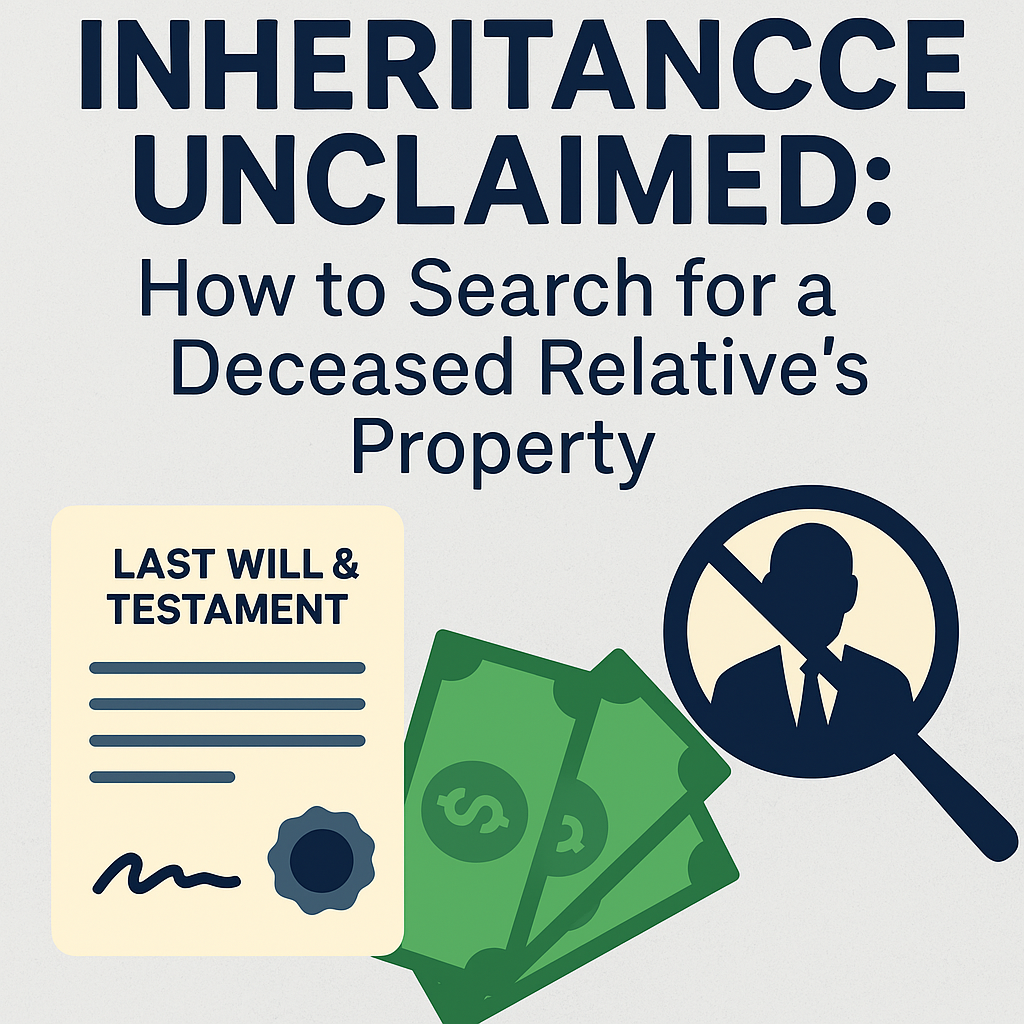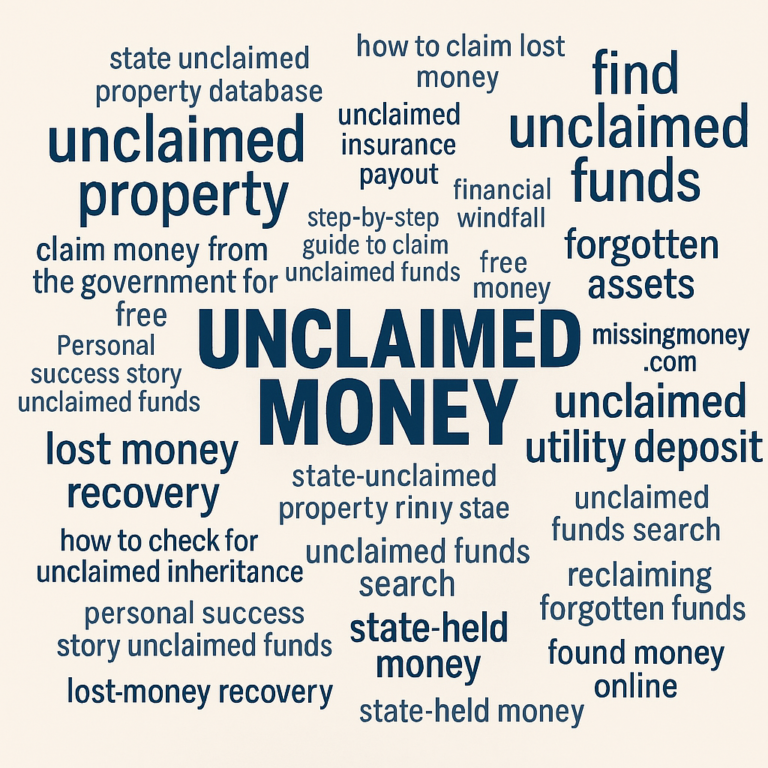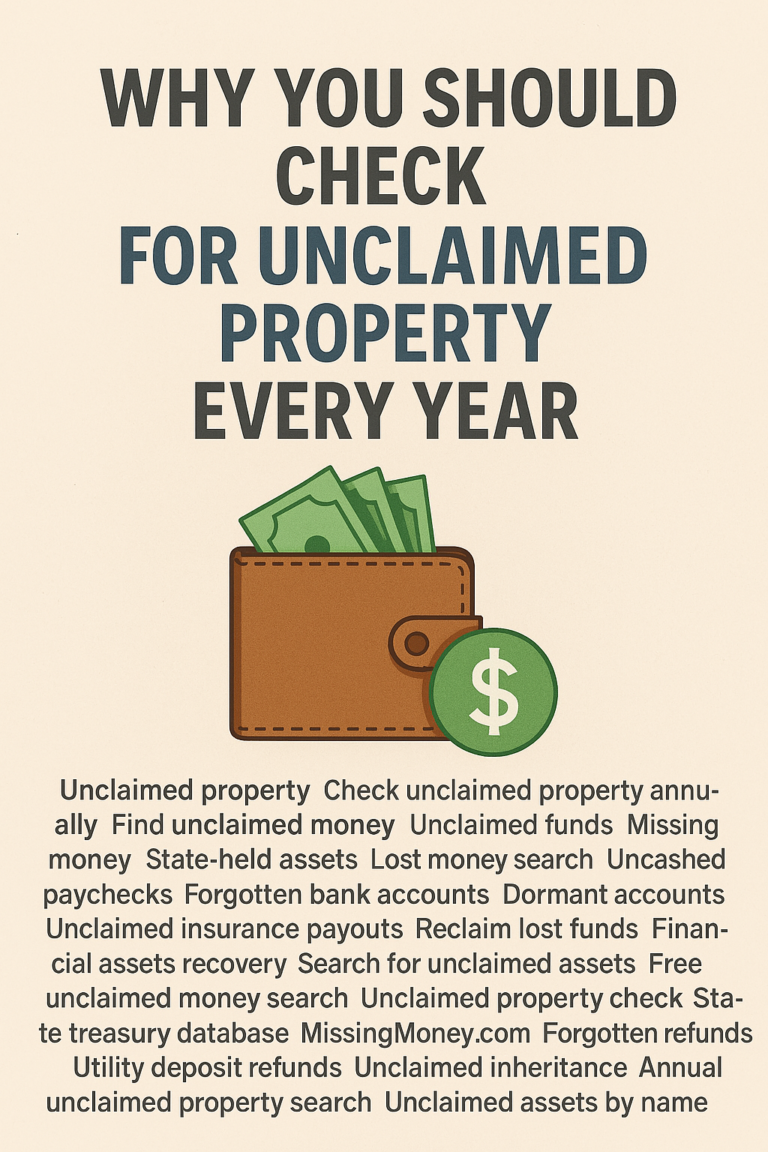Inheritance Unclaimed: How to Search for a Deceased Relative’s Property
Inheritance Unclaimed: How to Search for a Deceased Relative’s Property
When a loved one passes away, we’re often left dealing with grief—and a mountain of responsibilities. What many people don’t realize is that they could also be overlooking valuable unclaimed property or inheritance left behind by their deceased relatives.
Each year, billions of dollars go unclaimed because heirs aren’t aware that they’re entitled to financial assets. These funds sit in state treasuries, unclaimed and waiting. If you’re wondering whether a deceased loved one left assets you don’t know about, this guide is for you.
What Is Unclaimed Inheritance?
Unclaimed inheritance refers to financial property—such as savings accounts, insurance policies, stocks, pensions, or utility deposits—that were not claimed by beneficiaries or family members after someone dies. When institutions can’t find the heirs, the assets are handed over to the state.
Common Sources of Unclaimed Inheritance:
- Bank and savings accounts
- Life insurance policies
- Safe deposit box contents
- Uncashed checks (e.g., tax refunds, pension payments)
- Stocks, bonds, or dividends
- Property or real estate proceeds
Why Assets Go Unclaimed:
- Lack of knowledge about the assets
- Outdated contact information
- Forgotten accounts or policies
- No will or estate plan
- Poor communication between financial institutions and heirs
How to Begin the Search:
- Start with your state’s unclaimed property website. Visit your state treasury or controller’s website. You can also use https://theunclaimedtreasure.com, which is endorsed by most U.S. states.
- Search using the deceased’s full legal name. Include any former names, maiden names, or middle initials.
- Check every state they lived or worked in. Assets may have been turned over to different state treasuries.
- Look for probate court records. If an estate went through probate, there may be a public record of assets or claims.
- Contact former employers, insurance companies, or banks. Some institutions may still be holding funds if they haven’t yet escheated them to the state.
Documents You Might Need:
- Death certificate
- Proof of your relationship to the deceased (birth or marriage certificate)
- Your government-issued ID
- Legal documents (such as a will or power of attorney)
Final Thoughts:
Discovering unclaimed inheritance isn’t just about money—it’s about preserving and protecting a loved one’s legacy. If you suspect a relative left behind assets, don’t wait. States will hold these funds, but some assets may have claim deadlines or restrictions.
Take the time to search, follow up, and claim what’s rightfully yours. You might uncover more than just funds—you may also reconnect with part of your family’s history.



